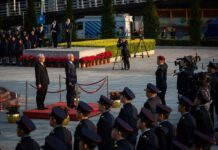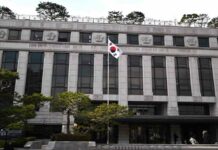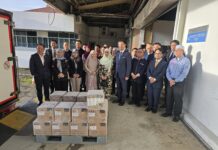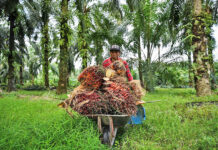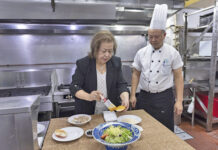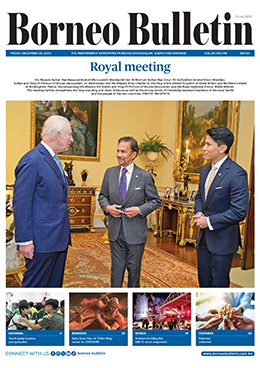Danial Norjidi
A new report published by the Asia-Pacific Economic Cooperation (APEC) Policy Support Unit (PSU) stated that the Asia-Pacific’s economy saw a 2.6 per cent growth in 2022, a decline from 6.1 per cent growth in 2021.
The February 2023 Update of the APEC Regional Trends Analysis also noted that the region’s economy is expected to pick up in the short term.
The report provided an overview of the region’s economy through an analysis of recent macroeconomic, trade, and investment trends.
It tracks recent trade and investment measures implemented around the region and discusses risks and opportunities to the region’s economic outlook.
Four key points are highlighted in the study, one of which is that “APEC economic growth is expected to pick up in the short-term, but downside risks continue to weigh on recovery”.
It noted that the following downside risks remain, but have moderated: inflation; higher interest rates; higher debt; reduced investments; geopolitical issues; and new waves of COVID-19 infections.
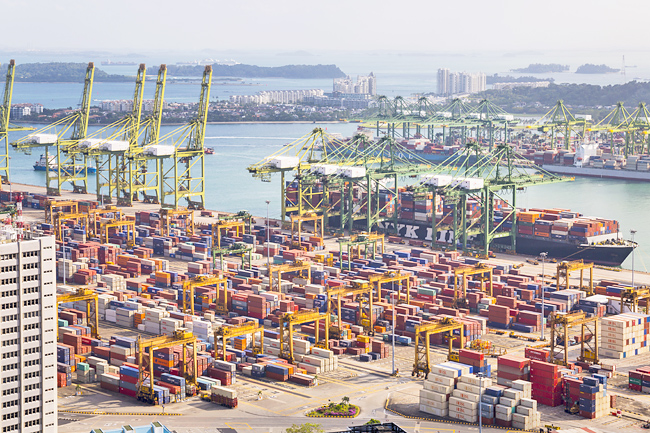
With regards to upside opportunities, the report mentioned: the re-opening of borders and businesses; increased private consumption; and targeted fiscal support.
In a press statement, newly appointed Director for the APEC PSU Carlos Kuriyama said, “The combination of an enduring pandemic, high inflation coupled with rising interest rates and debts, as well as the ongoing geopolitical issues resulted in a significant slowdown in the global economy during 2022.
“Both consumers and investors were cautious last year due to uncertainties and the gloomy economic outlook,” Kuriyama continued.
As a result, demand and investment activities progressed slowly.”
A second key point in the report is that food and energy prices remain elevated, but inflation is starting to moderate as synchronised monetary policy hikes take effect.
As the statement elaborates, inflation in APEC reached 5.8 per cent in 2022, which is the highest inflation rate since the financial crisis in 2008, when it peaked at 6.6 per cent.
The report projects APEC’s inflation to taper down to 3.9 per cent this year, declining further to 2.7 per cent in 2024.
A senior researcher with the Policy Support Unit Rhea C Hernando said, “The sustained and broad-based increase in prices promoted an aggressive and synchronised response from monetary authorities across the world.”
“In APEC, we are seeing the majority of central banks increase interest rates to dampen price pressures.”
A third key message in the report is that APEC merchandise trade growth slowed in 2022, but travel and tourism are back on track.
The APEC PSU noted that rising uncertainties weakened merchandise trade in APEC during the first nine months of 2022. Growth in the volume of APEC’s merchandise exports was flat, while merchandise imports grew by 4.3 per cent compared to the same period last year, when these expanded by 14.4 per cent and 16.1 per cent respectively. Meanwhile, the value of merchandise trade’s exports and imports grew by 14.5 per cent, showing more resilience due to relatively high energy prices in 2022, driven in turn by supply shocks.
“We expect a modest growth of trade volumes in APEC this year, following the slowdown in global demand” added the APEC PSU director.
The statement proceeds to note that, in contrast, commercial services trade performed better in 2022, with exports and imports growing by 13 per cent and 15.6 per cent respectively in the second quarter of last year.
“The strong expansion in trade in this sector was propelled by travel services, which increased by 60 per cent as economies progressively reopened borders and relaxed COVID-19 restrictions.”
In its fourth key point, the report highlighted that regional cooperation is crucial to achieve growth that benefits all people and takes care of the environment. The APEC PSU statement mentions that officials from the 21 APEC member economies are convening in Palm Springs, California, to kick off the first technical meeting cluster of APEC 2023. It also notes that the United States is hosting APEC this year and will drive the forum’s agenda under the theme, ‘Creating a Resilient and Sustainable Future for All’.
“Taking advantage of the upcoming meetings in Palm Springs, member economies should prioritise efforts to coordinate clear and consistent policies,” Kuriyama said. “Coordinated macroeconomic policies play an important role in addressing the rising cost of living.
“In addition, keeping trade free, fair and open, and boosting trade facilitation could reduce the pressure on food and energy prices considerably, mitigating the adverse impact on food security and poverty levels” he added.
APEC is a reginal economic forum established in 1989 with 21 members, including Brunei Darussalam. The APEC PSU is a research and analysis arm for APEC.













